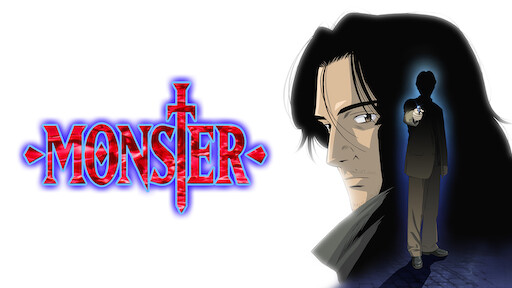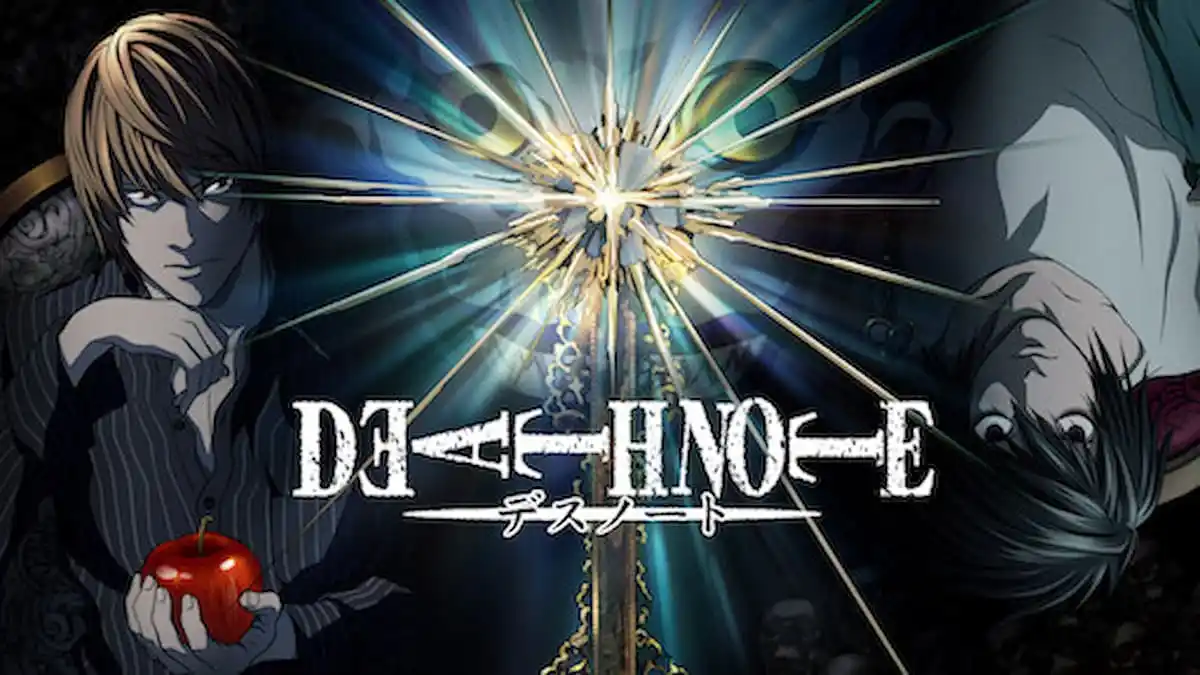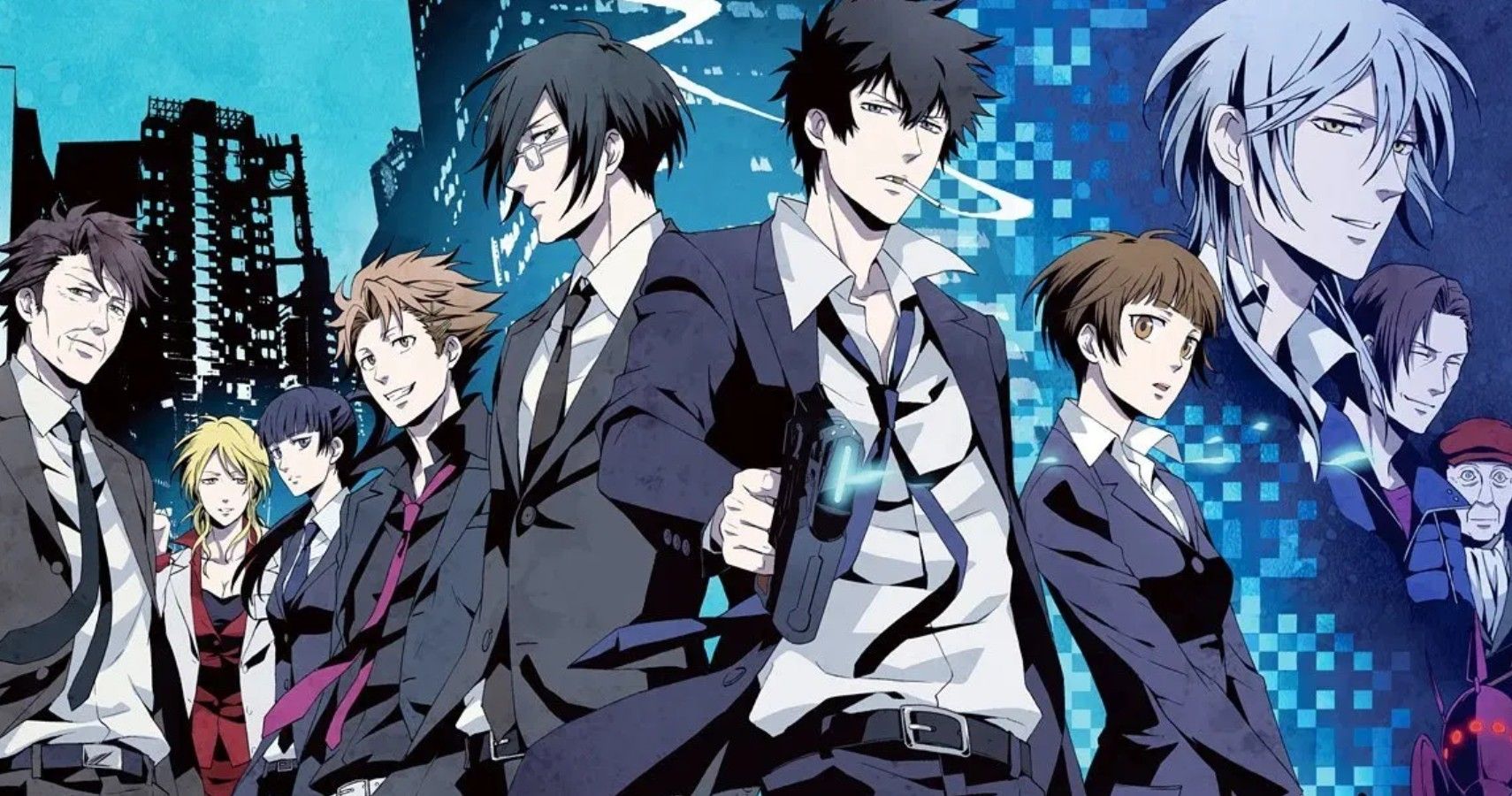Featured Post
Best Sienen Anime recommendation - Part 1
- Get link
- X
- Other Apps
Seinen anime is a genre that targets a mature male audience, typically aged 18 and above. Unlike shonen anime, which focuses on younger audiences and often features action-packed adventures, seinen anime explores more mature themes and delves into complex narratives and character development. It often tackles darker and more introspective subject matter, including psychological, philosophical, and social issues.
Seinen anime covers a wide range of genres, from action and thriller to drama and science fiction. It offers a diverse selection of storytelling styles and artistic approaches, catering to the varied interests of its target audience. Some seinen anime series are adaptations of manga or light novels, while others are original creations.
One notable aspect of seinen anime is its emphasis on realism and a more nuanced portrayal of human emotions and relationships. It explores the complexities of life and often incorporates elements of tragedy, moral ambiguity, and existentialism. Seinen anime frequently challenges societal norms and tackles mature themes such as love, death, identity, and the human condition.
Monster Anime: Dr. Tenma Vs Jhon Liebert
Introduction:
In the vast landscape of anime, where genres range from action-packed adventures to heartwarming romances, "Monster" stands as a compelling psychological thriller that captivates viewers with its intricate storytelling and thought-provoking themes. Based on Naoki Urasawa's manga of the same name, "Monster" is an anime series that defies convention, delivering a suspenseful narrative that explores the depths of the human psyche. In this article, we will delve into the world of "Monster" and explore why it has garnered critical acclaim and a dedicated fan base.
The Premise:
"Monster" follows the story of Dr. Kenzō Tenma, a brilliant neurosurgeon living in Germany. When faced with a moral dilemma, Tenma makes a life-altering decision by saving the life of a young boy named Johan Liebert, forsaking the mayor who was set to receive his expertise. However, as the years pass, Tenma discovers the sinister nature of Johan, who has grown into a manipulative and charismatic serial killer. Driven by guilt and a desire to rectify his mistake, Tenma embarks on a perilous journey to bring Johan to justice and protect those he cares about.
Intricate Storytelling:
One of the standout features of "Monster" is its masterful storytelling. The series expertly weaves together a complex web of interconnected characters and intricate plotlines. As Tenma delves deeper into the dark underbelly of society, he encounters a diverse cast, each with their own motivations, secrets, and psychological complexities. The narrative unfolds with meticulous precision, gradually revealing the true extent of Johan's influence and the far-reaching consequences of Tenma's choices.
Exploring the Human Psyche:
At the heart of "Monster" lies an exploration of the human psyche and the inherent duality of good and evil. The series poses profound questions about morality, identity, and the capacity for darkness within us all. Through the multifaceted characters and their choices, "Monster" delves into the complexities of human nature, blurring the lines between hero and villain, and challenging viewers' perceptions of right and wrong.
Complex Characters:
The strength of "Monster" lies in its brilliantly crafted characters, each with their own unique motivations and psychological depth. Dr. Kenzō Tenma is a compelling protagonist, torn between his duty as a doctor and his desire for justice. Johan Liebert, the enigmatic antagonist, exudes charisma while embodying pure malevolence. Supporting characters, such as Inspector Heinrich Lunge and Nina Fortner, add further layers to the narrative, showcasing their own struggles and intricate relationships with Tenma and Johan. It is the complexity and development of these characters that truly make "Monster" shine.
Themes of Morality and Consequences:
"Monster" delves into themes of morality and the consequences of one's actions. It challenges viewers to ponder the nature of redemption, the weight of guilt, and the true meaning of justice. The series raises thought-provoking questions about the blurred lines between good and evil and forces us to confront the darkness that can reside within even the most seemingly ordinary individuals.
Artistic and Technical Excellence:
The animation and art style of "Monster" are visually striking, perfectly capturing the dark and gritty atmosphere of the story. The series excels in its attention to detail, creating richly textured backgrounds and delivering intense and emotional character performances. The haunting soundtrack further enhances the tension and unease, immersing viewers in the world of "Monster" and intensifying the psychological impact of the narrative.
Conclusion:
"Monster" stands as a true gem in the world of anime, a psychological thriller that transcends the ordinary boundaries of the medium. With its intricate storytelling, exploration of the human psyche, complex characters, and thought-provoking themes, "Monster" leaves a lasting impact on its audience.
The series challenges viewers to examine their own notions of morality and confront the darkness that lurks within humanity. It poses difficult questions about the consequences of our choices and the power of redemption. As we follow Dr. Kenzō Tenma's journey, we are drawn into a world of moral ambiguity, where the lines between right and wrong become blurred.
"Monster" is not only a suspenseful thriller but also a deep character study. It delves into the motivations, fears, and traumas that shape each character, presenting a rich tapestry of human emotions and vulnerabilities. The complexity of the characters, from Tenma's internal struggle to Johan's enigmatic persona, adds layers of intrigue and depth to the narrative.
Furthermore, the technical and artistic excellence of "Monster" contributes to its overall impact. The animation captures the essence of the story, with its attention to detail and atmospheric visuals. From the gloomy alleyways of Munich to the chilling expressions on characters' faces, the animation brings the story to life in a way that intensifies the psychological weight of the narrative.
The haunting soundtrack of "Monster" further enhances the atmosphere, immersing viewers in a world of suspense and unease. The music heightens the tension, evoking a range of emotions and amplifying the impact of pivotal moments within the series.
In conclusion, "Monster" is a tour de force in the world of anime, a psychological thriller that pushes the boundaries of storytelling and challenges the audience to explore the complexities of the human condition. With its intricate narrative, exploration of morality, complex characters, and artistic excellence, "Monster" stands as a true masterpiece. It is a series that leaves a lasting impression, provoking thought and reflection long after the final episode. For those seeking a captivating and thought-provoking anime experience, "Monster" is an absolute must-watch. Prepare to embark on a journey that will test your perceptions, challenge your beliefs, and keep you on the edge of your seat until the very end.
Death Note: Light vs L, Who will win?
Introduction:
"Death Note" has firmly established itself as one of the most iconic and captivating anime series of all time. With its intricate plot, morally complex characters, and intense psychological battles, "Death Note" pushes the boundaries of storytelling and explores the darkest corners of the human psyche. In this article, we delve into the world of "Death Note" and examine why it continues to captivate audiences, leaving an indelible mark on the anime landscape.
The Premise:
"Death Note" introduces us to Light Yagami, an exceptionally intelligent high school student who discovers a mysterious notebook known as the Death Note. This supernatural notebook grants its wielder the power to kill anyone whose name is written within its pages. Driven by his belief in justice and his desire to rid the world of criminals, Light takes on the mantle of the vigilante Kira and embarks on a relentless quest to cleanse society. However, his actions do not go unnoticed, as the eccentric detective known as L steps in to uncover Kira's true identity and bring him to justice.
The Battle of Wits:
What sets "Death Note" apart is the exhilarating battle of wits between Light and L. As both characters possess extraordinary intellects, their clash becomes a psychological cat-and-mouse game that keeps viewers on the edge of their seats. Each move and countermove, as they try to outmaneuver one another, raises the stakes and heightens the tension. The intricate strategies, manipulations, and deductions employed by both Light and L make for a truly compelling narrative.
Exploring Morality and Justice:
At the core of "Death Note" lies a profound exploration of morality and the nature of justice. The series challenges viewers to question the boundaries of right and wrong, as Light's pursuit of justice takes a dark and morally ambiguous turn. Is he a hero, a villain, or something in between? "Death Note" forces us to confront our own beliefs and examine the complexities of the human condition. It raises thought-provoking questions about the price of absolute power and the consequences of playing god.
Complex Characters:
The characters in "Death Note" are multi-dimensional and immensely captivating. Light Yagami's transformation from a morally driven protagonist to a power-hungry anti-hero is a riveting character study. L, with his eccentricities and brilliant deductive skills, serves as the perfect foil to Light, creating a dynamic and engaging rivalry. The supporting cast, including Misa Amane, Near, and Mello, add further layers to the narrative, each with their own unique perspectives and motivations.
Themes of Identity and Sacrifice:
"Death Note" also delves into themes of identity and the sacrifices one is willing to make in pursuit of their ideals. Light's dual life as a brilliant student and a vigilante forces him to confront the consequences of his choices and the toll it takes on his relationships. The series also explores the theme of the human desire for power and the corrupting influence it can have.
Artistic Excellence:
The visual style and animation of "Death Note" perfectly complement its dark and suspenseful tone. The use of shadows, the detailed character designs, and the atmospheric settings contribute to the overall aesthetic of the series. Additionally, the haunting soundtrack amplifies the tension, further immersing viewers in the psychological drama unfolding on screen.
Conclusion:
"Death Note" stands as a testament to the power of intelligent storytelling and intricate character dynamics in the realm of anime. With its gripping battle of wits, exploration of morality, and complex characters, the series has left an indelible mark on the genre. It continues to captivate audiences, provoking thought and sparking discussions about ethics, justice, and the human condition.
"Death Note" challenges our perceptions of right and wrong, blurring the lines between hero and villain. It forces us to question the lengths we would go to in order to achieve our goals and the consequences of our actions. The series raises philosophical and ethical dilemmas that linger in our minds long after the final episode.
Moreover, the character development in "Death Note" is exceptional. Light Yagami's descent into moral ambiguity and his gradual transformation into a manipulative and power-hungry individual showcase the complexities of human nature. L, on the other hand, with his unorthodox methods and unwavering determination, becomes an enigmatic figure whose intentions and true identity are shrouded in mystery. The intricate interplay between Light and L keeps viewers engrossed, as they constantly second-guess each other's moves.
The thematic depth of "Death Note" is matched by its visual and auditory excellence. The animation style is sleek and atmospheric, with the use of shadows and dramatic lighting heightening the suspenseful atmosphere. The psychological intensity of the series is further enhanced by the haunting soundtrack, which perfectly complements the tone and adds to the overall immersive experience.
Ultimately, "Death Note" is more than just a battle of wits between two brilliant minds. It is a thought-provoking exploration of morality, justice, and the complex nature of humanity. The series challenges us to examine our own beliefs, values, and the fine line that separates the light and darkness within us.
"Death Note" has undoubtedly left a significant impact on the anime industry and has garnered a massive following worldwide. Its thought-provoking narrative, memorable characters, and philosophical themes have solidified its place as a masterpiece within the genre.
In conclusion, "Death Note" stands as a testament to the power of intelligent storytelling, moral ambiguity, and psychological depth. It has carved its place as one of the most iconic and influential anime series, pushing the boundaries of what animated storytelling can achieve. If you seek a thrilling and intellectually stimulating experience that challenges your perceptions, "Death Note" is an absolute must-watch. Prepare to embark on a gripping journey of intellect, morality, and the battle for ultimate power.
Psycho-Pass: Exploring the Depths of Humanity in a Futuristic Dystopia
Introduction:
In the realm of dystopian anime, "Psycho-Pass" stands as a thought-provoking and intense series that delves into the complexities of human nature and societal control. Set in a futuristic world where technology monitors and determines an individual's mental state and propensity for criminal behavior, "Psycho-Pass" presents a riveting narrative that challenges our perceptions of justice, free will, and the limits of authority. In this article, we will explore the captivating world of "Psycho-Pass" and examine why it has garnered critical acclaim and a dedicated fan base.
The Premise:
"Psycho-Pass" takes place in a society governed by the Sibyl System, a powerful artificial intelligence that assesses an individual's mental state and assigns them a "Psycho-Pass," a numerical value that determines their potential for criminal behavior. The story revolves around Akane Tsunemori, a young police officer, as she navigates the complexities of her job in the Public Safety Bureau's Criminal Investigation Division. Alongside her colleagues, Akane grapples with moral dilemmas, unravels criminal mysteries, and questions the limits of the system she serves.
Exploration of Free Will and Determinism:
At the heart of "Psycho-Pass" lies a philosophical exploration of free will and determinism. The series examines whether an individual's mental state, as determined by the Sibyl System, can accurately predict their propensity for criminality. It raises profound questions about personal agency, moral responsibility, and the potential dangers of a society that relies solely on algorithmic judgment. As characters navigate their own desires and confront the limitations of the system, "Psycho-Pass" challenges viewers to reflect on the delicate balance between security and individual freedom.
Complex Characters and Moral Ambiguity:
"Psycho-Pass" boasts a diverse and complex cast of characters, each grappling with their own inner conflicts and moral dilemmas. Akane Tsunemori, the series' central protagonist, undergoes significant character development as she confronts the flaws of the system and struggles to maintain her own values. Other notable characters, such as Shinya Kogami and Shogo Makishima, add layers of depth and moral ambiguity to the narrative, blurring the lines between hero and villain. The multidimensional characterization in "Psycho-Pass" further enhances the series' exploration of the human psyche and the choices individuals make in the face of societal pressures.
Ethics, Justice, and Authority:
"Psycho-Pass" poses thought-provoking questions about ethics, justice, and the role of authority in maintaining order. It examines the potential dangers of relying solely on objective algorithms to determine guilt and punishment, while also exploring the subjective nature of morality. As the series progresses, the cracks in the seemingly perfect system become evident, and characters are forced to grapple with the ethical implications of their actions. The tension between maintaining social stability and preserving individual liberties forms a central theme throughout the series, challenging viewers to reflect on the real-world implications of an all-encompassing surveillance state.
Artistic Style and Atmosphere:
The visual aesthetic of "Psycho-Pass" contributes significantly to its immersive and dystopian atmosphere. The series showcases a blend of sleek futuristic design and gritty noir elements, capturing the oppressive nature of the society it portrays. The animation is sharp and fluid, emphasizing the intense action sequences and heightening the emotional impact of key moments. Additionally, the haunting soundtrack complements the dark tone of the series, creating an immersive experience that resonates with viewers.
Conclusion:
"Psycho-Pass" is a compelling and intellectually stimulating anime series that challenges our perceptions of societal control and the complexities of human nature. Through its exploration of free will, determinism, moral ambiguity, and the consequences of authority, "Psycho-Pass" pushes the boundaries of storytelling and provokes thought long after the series concludes.
The thought-provoking narrative, coupled with its richly developed characters and immersive atmosphere, has firmly established "Psycho-Pass" as a standout series within the dystopian genre. Its ability to tackle complex philosophical themes and raise profound ethical questions sets it apart from other anime of its kind. By questioning the very nature of justice and the balance between individual freedom and societal control, "Psycho-Pass" invites viewers to reflect on the state of our own world and the potential dangers of technological surveillance.
The series serves as a cautionary tale, warning us about the potential consequences of an all-encompassing surveillance state and the relinquishment of personal agency. It urges us to critically examine the systems in place in our own society and consider the ethical implications of sacrificing individual freedoms for the sake of security.
Furthermore, the visual and auditory elements of "Psycho-Pass" enhance its impact. The dark and atmospheric visuals, alongside the intense action sequences, contribute to the overall dystopian aesthetic, immersing viewers in the oppressive world of the series. The haunting soundtrack further heightens the tension and emotional resonance, capturing the psychological and moral complexities faced by the characters.
In conclusion, "Psycho-Pass" is a masterpiece that goes beyond the conventions of traditional anime storytelling. Its exploration of free will, moral ambiguity, and the implications of authority challenges viewers to question their own beliefs and examine the world around them. With its captivating narrative, complex characters, and dystopian atmosphere, "Psycho-Pass" remains a significant and enduring series that leaves a lasting impression. It serves as a reminder to never underestimate the power of introspection, critical thinking, and the pursuit of true justice in an increasingly complex and interconnected world.
- Get link
- X
- Other Apps





Comments
Post a Comment